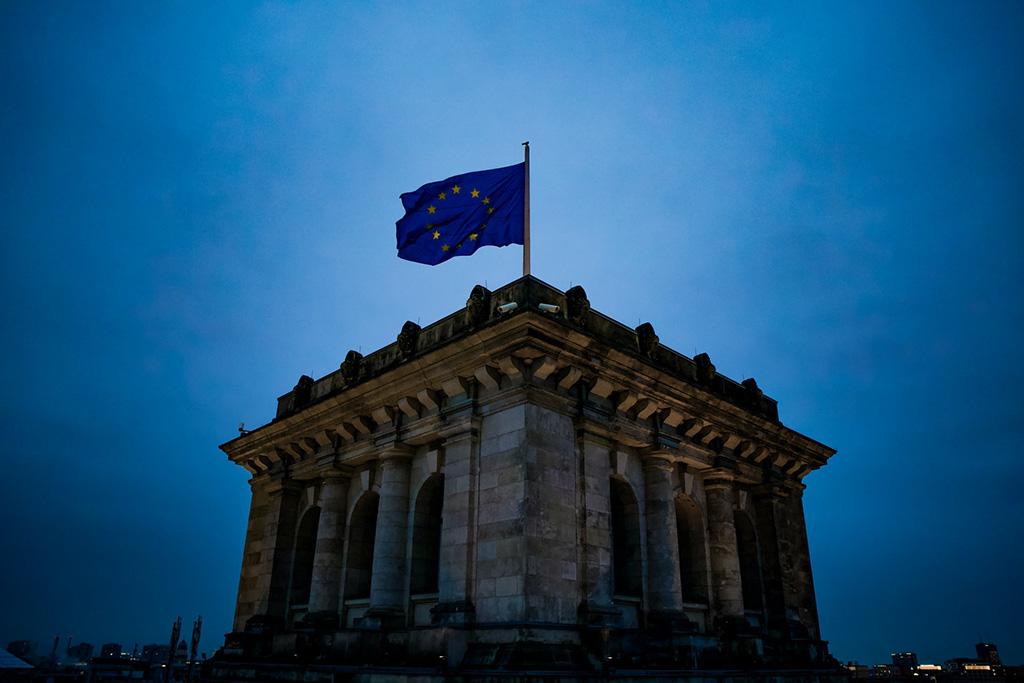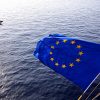
What will be the geopolitical impact of the COVID19 pandemic? And what should be the role of the EU in the post pandemic “new normal”? These are the questions that a recent report prepared by Florence Gaub, Deputy Director of the European Institute for Security Studies, for the European Parliament (EP) address. Most analysts have so far argued that the pandemic will be either a complete geopolitical game-changer or that it will accelerate previous trends. However, this report has the ability of combining and deconstructing both hypothesis, which leads to more nuanced and sophisticated conclusions. It has the great advantage of combining a detailed analysis of the evolution and future prospects of the key international relations of the EU and to then present “alternative futures” for the medium turn (2025). As the author argues “exploratory scenarios (…) are a tool allowing for an examination of a range of futures, each based on potential trajectories of drivers and their interaction with each other. Exploratory scenarios are not designed to predict the future or point out the most probable one. Instead, they are useful to identify high-level problems, highlight knock-on effects, causalities, and consequences of certain actions.”
In the following lines, we summarize the reports main findings, explain the future scenarios outlined, and speculate about the role of the EU in the post-pandemic world.
Key takeaways
The report analyses the geopolitical implications of the COVID-19 pandemic. It first assesses the impact on pre-existing trends before examining the space for change that the pandemic opens up. Finally, it looks into how these impacts would play out in various scenarios. Ultimately, the EP argues that this will be an “era of re-definition” in which the EU should play a crucial role. The pandemic is neither simply a geopolitical game changer nor simply an accelerator of pre-existing trends but a combination of both. Yet, a lot remains uncertain, the persistence and depth of the pandemic are yet to be known and these will alter the geopolitical consequences.
The report cites the ability of the pandemic to act as an accelerator to pre-existing trends. In regard to the relations with China it suggests that COVID-19 has simply accelerated trends. China’s rise has been a long time in the making: Chinese foreign direct investment rose from 1 billion euros in 2008 to 35 billion euros in 2016 and already by 2017 the US National Security Strategy labelled China a “revisionist power”. The origin of the pandemic in China and China’s subsequent attempts to divert attention from those origins only furthered this pre-existing trend. The EU-China relationship was delicate before the pandemic but Commission President Ursula von der Leyen calling it “challenging” heralded a new diplomatic era which was perhaps inevitable given the growing hostility in US-China relations.
The increasingly tense transatlantic relations between the EU and US have also been accelerated by the pandemic. Trump’s arrival in office marked the start of a turbulent period culminating in the US imposing several tariffs on European exports in 2018. These tensions had already encouraged the EU to seek greater self-reliance, but this has been accelerated.
Meanwhile, the relationship between the EU and Russia has been a challenging one for some time but up to 2014 Russia was considered a partner to the EU, “albeit a difficult one” but with the subsequent annexation of parts of Ukraine, military support to the Syrian government and an increase in disinformation campaigns in Europe this relationship became more difficult. This dynamic has proved much the same at a time where Putin has extended his terms by altering the constitution and supported Belarus’s embattled leader (Alexander Lukashenko). The rapprochement of Russia and China will likely have negative implications for the EU. The report suggests that the EU got off to bad start in its Eastern neighbourhood and the Western Balkans because of false allegations that it was banning medical exports.
EU concern over instability in the Middle East and North Africa dates from the Arab Spring and once again the pandemic has exacerbated this. The region has been particularly badly hit by the pandemic’s secondary economic and social effects and several governments, such as that of Egypt’s have seized the opportunity to increase their control. The report argues that there is however a window of opportunity for the EU to begin engaging in dialogue and reform in the region. It also argues that the picture is mixed when it comes to the future of democracies. Even before the pandemic the number of democracies in the world continued to rise, but the quality was deteriorating, particularly in the region stretching from Central Europe to Central Asia. But 2019 also saw a growth in protest movements. Similarly, it has been a mixed picture for democracy during the pandemic. Whilst some elections and referendums were postponed and there has been an increase in authoritarianism, there have also been frequent demonstrations and activism in favour of democracy. Thus, the report concludes that the status of democracy post-COVID19 is not yet possible to determine.
The report also highlights the potential for change by the production of “game-changers”: areas where decisions are yet to be taken, and where the future trajectory is therefore still uncertain. COVID-19 opens up the possibility of permanent change to trade and supply chains. The report argues that where the pandemic did produce potential geopolitical game-changer was in its revelation of dependence on certain countries for critical supply chains. This has already led to governments encouraging companies to re-shore and putting forward proposals to curb foreign subsidies with the goal of increasing strategic autonomy and resilience. However, this could also all be exaggerated, and when the pandemic recedes countries and companies may once again prioritise cost-efficiency. Healthcare will undoubtably change post COVID-19: previously, it was a largely national affair, but the need for global health cooperation has become clear. What is unknown is how far will this cooperation go and who will assume the global role, for example will it be the EU. The pandemic has also opened up the world of digital diplomacy. At first meetings were postposed, but soon diplomacy adapted with the EU doubling its meetings between March and June compared to the previous year. Yet the issues with confidentiality, connection and states like Russia and China declaring virtual meetings to be only informal may limit digital diplomacy becoming a permanent complement to traditional diplomacy. It is also yet to be seen whether it improves or weakens efficiency and so it is yet to be seen whether it will be a real game-changer. The report also goes on to discuss the possible green revolution and whether Europe could become a green superpower. Lockdowns caused a reduction in mobility and temporary closing down of production sites caused an unprecedented fall in CO2 emissions. Yet, time will tell if this will have long term effects given that the financial crisis of 2008-9 saw similar patterns only for them to be reversed two years later. A particular variable in establishing how much of a game-changer is the likely longevity of the pandemic: the longer it lasts, the more likely it is to generate long-lasting changes in behaviour. What is still unknown is to what extent states will use the pandemic to advance measures against climate change, what changes in behaviour will endure and will the EU Green Recovery plan succeed and even spread beyond its borders. A further possible change is that the pandemic may open space for increased political activism and subsequent reform. But the consequences of this on political systems and instability are unknown. Thus, the pandemic clearly has opened up space for change but whether this change will happen is as yet unknown.
Three scenarios to provoke the debate
The report goes on to discuss three possible scenarios. In the first, called strategic distancing, a number of decisions and developments lead to greater distance between all global players (excluding Russia and China who strengthen their ties in all three scenarios). The pandemic has served as a wake-up call for Europe, which relied too heavily on others in sectors considered essential, like healthcare. Europe in this scenario does not choose between the US and China, but rather carves out its own way. This scenario also predicts Russia’s international standing to dwindle.
In the second, called Europe in self-isolation, the pandemic shock leads to Europe withdrawing from a global role and turning inwards. This scenario also assumes the re-election of President Trump who turns his trade war into a “cold military war” with China. Europe turns inwards to focus on its own needs while authoritarian governments are on the rise.
In a final scenario, called Lockdown World, it predicts a situation where the world divides evenly between two camps that have very little contact with each other. America remains focused on China so Europe, wanting to be a decent ally, follows the path towards strategic segregation. By 2025 supply is diversified but only towards the “democratic camp”. The world is a hostile one. American focus on Asia means that Europe is pushed into an enhanced military role in its Eastern and Southern Neighbourhoods. The European public increasingly support more forceful European defence posture.
The report concludes by stating there is both certainty and uncertainty when it comes to the coming years. The pandemic does not fundamentally alter several trends that preceded it. But it is uncertain which choices decision-makers will prefer. Europe will also need to decide what role it wants to play in the Sino-American conflict. Global health is an area with near consensus in which there is agreement international cooperation should increase. For the EP this will no doubt be an era of re-definition.
All in all, and despite the existing radical uncertainty, the EU should hope for the best, but prepare for the worst. And preparing for the worst requires promoting European Strategic Autonomy, understood as the ability/capacity to avoid that other powers force the EU to do things that it would rather not do. This implies upgrading its geopolitical kit, learning to think strategically and explicitly linking its foreign policy with its economic, commercial, technological, industrial, and security policy, as other great powers do. But since a good foreign policy starts at home, it is essential to reduce internal divisions and continue the process towards an “ever closer union”.


